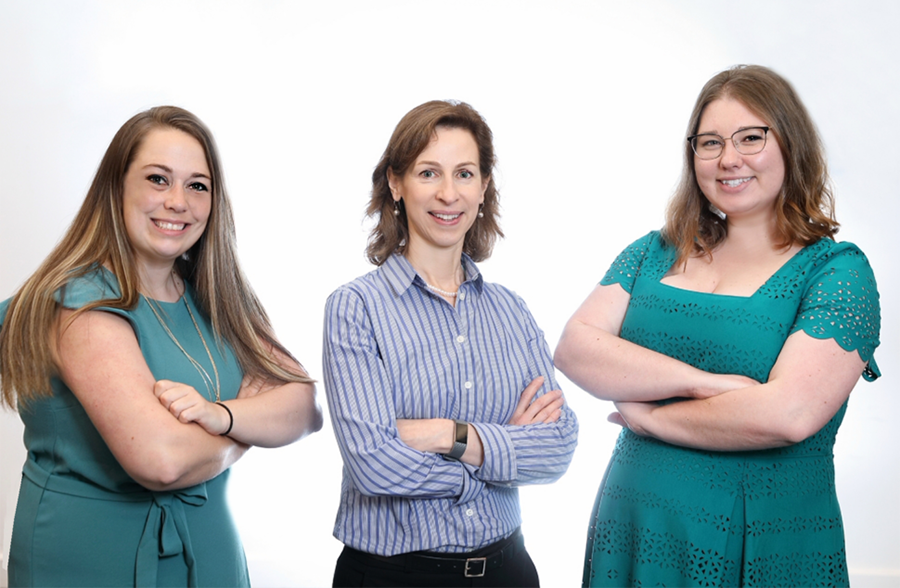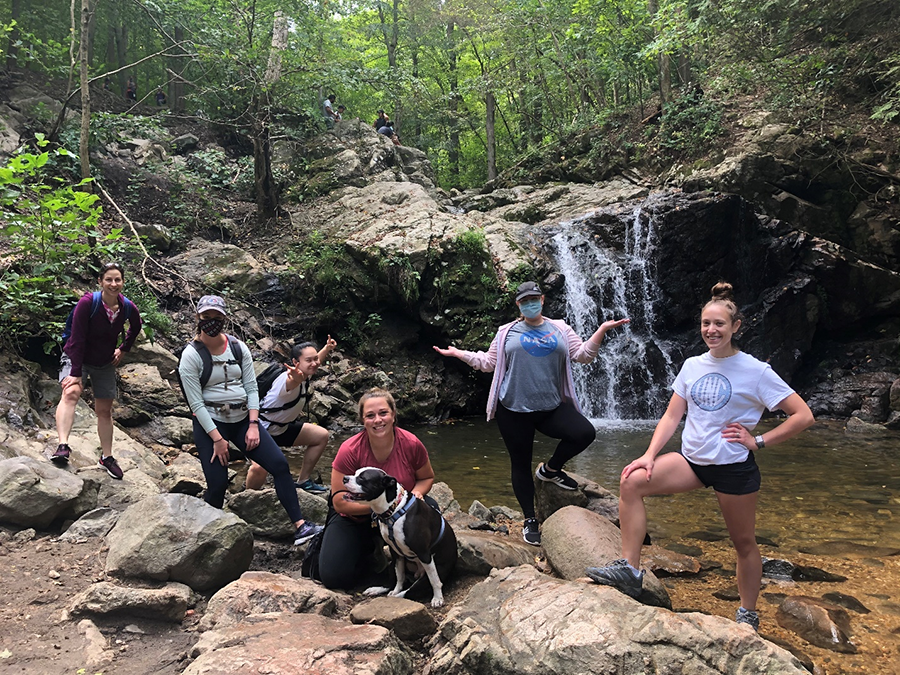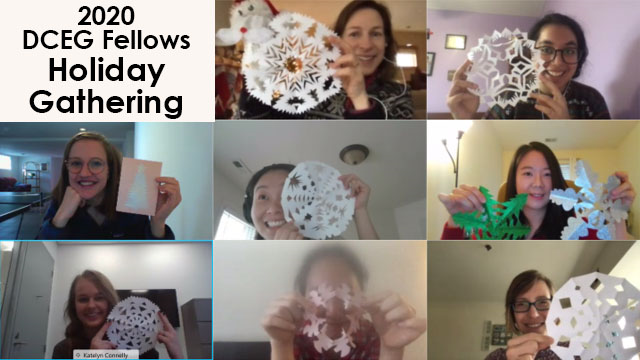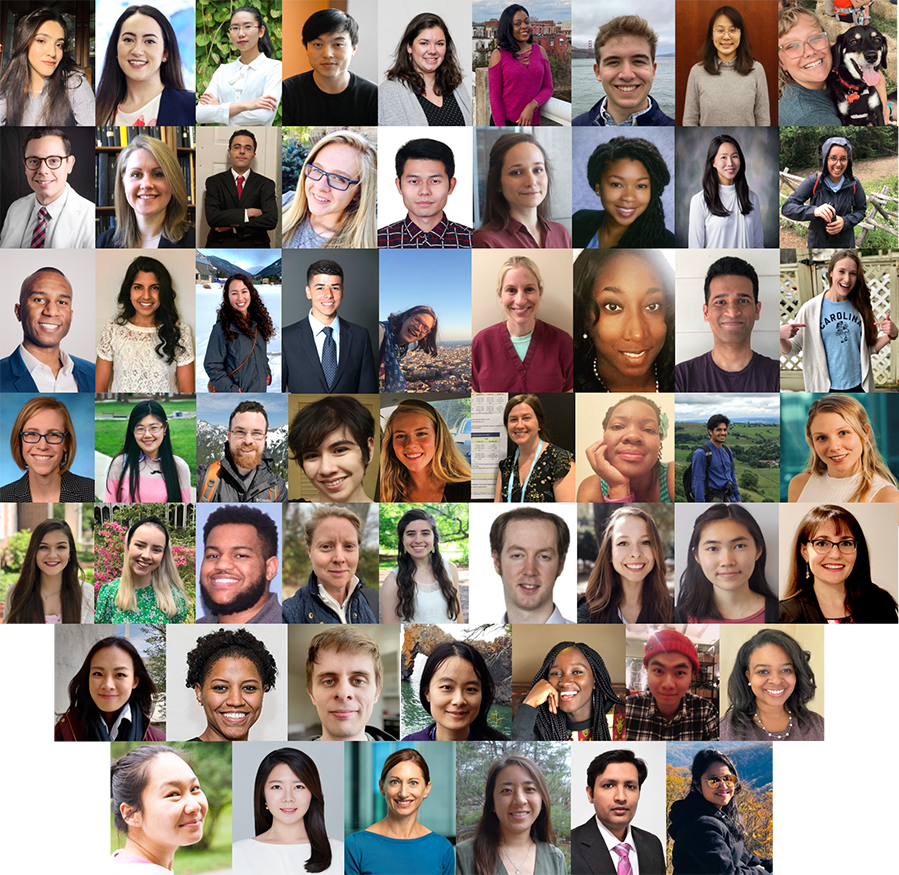Building A Robust Community for Fellows in the COVID-19 Era
, by Maura Kate Costello, M.A.
Jackie Lavigne, Ph.D., Diane Wigfield, and Cara Murray of the Office of Education provided support to more than 140 fellows amidst the COVID-19 pandemic.
Overcoming Disconnection
Starting a new position can be difficult, even during a normal year. With the profound disruptions resulting from the global COVID-19 pandemic, building relationships with colleagues and adapting to workplace culture can be even harder. In response, Jackie Lavigne, Ph.D., Chief of the Office of Education (OE) in the Division of Cancer Epidemiology and Genetics (DCEG), Diane Wigfield, OE Program Coordinator, and Cara Murray, OE Program Specialist, provided remarkable support to the 50 fellows who joined DCEG over the course of 2020, in addition to the current trainees.
The feeling of disconnection is perhaps the greatest difficulty of working virtually, especially for those living alone, new to the area, or telecommuting from far away. To supplement the standard orientation and six-month check-in for new fellows, Dr. Lavigne, Ms. Wigfield, and Ms. Murray reached out to each of the over 140 fellows in DCEG within the first six months of the pandemic. These conversations created an opportunity for trainees to express their concerns about work, family, or feelings of loneliness, so that OE staff could provide support. To translate Fellows Appreciation Week—which usually involves open-house style gatherings for fellows and mentors with breakfast treats or afternoon tea—to the work-from-home environment, OE partnered with the DCEG Communications Team to create and share beautiful messages with photographs and words of encouragement and support from branch chiefs and investigators via social media and digital cards.
Despite the setbacks resulting from social distancing and working from home, the OE has created multiple opportunities for fellows to connect meaningfully and build community. They launched a monthly brown-bag with Division leadership where new fellows are introduced and all fellows can chat with Division Director, Stephen J. Chanock, M.D., and Deputy Director, Montserrat García-Closas, M.D., Dr.P.H., about their concerns and interests. “It is a privilege to connect with our trainees,” remarked Dr. García-Closas. “The lunches offer an opportunity for us to get to know fellows from across the Division in an informal setting.”
In the fall, fellows gathered for a socially distanced hike, organized by OE, and during the holiday season, they participated in a week of fun, virtual activities, which included crafting decorations, sipping hot cocoa, baking and eating cookies, as well as sharing images and videos of their pets.
For more formal relationship-building among fellows, OE established a voluntary peer mentor program, matching ‘veterans’ with incoming fellows. A questionnaire matches fellows based on a number of preferences, including career stage of peer mentor, research area, parental status, and more.
“My peer mentor gave useful advice on how to get the most out of my training at NCI and how to work towards the next stages of my career. This program is a hit!” said Rohit Thakur, Ph.D., postdoctoral fellow in the Laboratory of Translational Genomics, who was paired with Diana Withrow, Ph.D., former research fellow in the Radiation Epidemiology Branch.
Reinventing Professional Development for Work-from-Home
The OE continued to conduct its robust array of outreach and professional development opportunities. Traditionally, DCEG hosts dozens of summer interns who come to NCI Shady Grove to conduct a research project, learn more about a career in epidemiology, and begin to build a professional network. While the summer program for 2020 was cancelled, Ms. Wigfield collaborated with and Division fellows and others in the NCI training community to offer many of its features to undergraduate and graduate students both in and outside the NIH. These included a six-session introductory course on epidemiology with 35 participants from all over the US, Asia, and South Africa; a workshop on how to read a scientific paper; and seven virtual meetings with fellows and senior scientists from DCEG, the Division of Cancer Control and Population Sciences, and the Center for Cancer Research, who shared their research, discussed career paths, and offered helpful encouragement and advice.
Some traditions continued as usual, but with adjustments to format or duration: The annual Fellow’s Symposium, where fellows showcase their research, network, and attend presentations by leaders in their field, was extended over two days. Dr. Lavigne remarked: “Based on fellow participation and feedback after each session, it was a resounding success. The organizing committee's careful consideration of what would work in the virtual environment really paid off.” The professional development workshops were also offered virtually. The Presentation Workshop, which focuses on how to structure, design, and deliver scientific talks was expanded into a four-day learning opportunity with didactic and practice sessions with a special emphasis on adapting presentations to virtual platforms. The grant writing workshop was revamped to include a self-directed component with weekly sessions where participants could discuss and ask questions.
New Beginnings for Trainees
While many were welcomed into the Division, others found themselves at the end of their fellowship. Dr. Lavigne supported fellows entering the job market with an interview workshop, which included tips for interviewing virtually, as well as hours of individual discussions and guidance. Dozens have transitioned to graduate or medical school, or to their next steps in their careers with positions at the following institutions: DCEG, Oxford University, Washington University in St. Louis, Centers for Disease Control and Prevention, Food and Drug Administration, National Center for Health Statistics, Henry M. Jackson Foundation, NVIDIA Bell Labs, Merck, and the Moffit Cancer Center. Dr. Lavigne also assisted a number of postbaccalaureate fellows applying to graduate school with a writing group to discuss, prepare, and share personal statements and other application materials.
“The OE continues to be a model of excellence in offering support and building community for our fellows,” praised Dr. Chanock. “The challenges of 2020 have only served to highlight more profoundly the OE staff’s value to the Division.”



